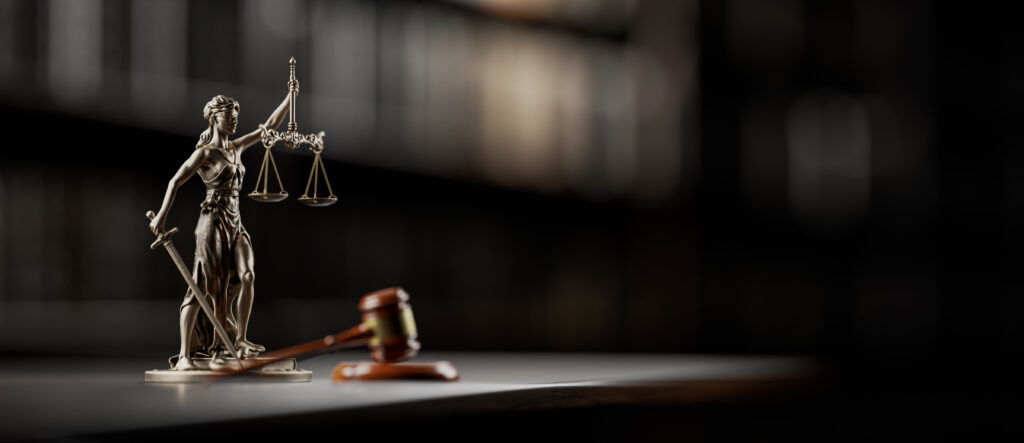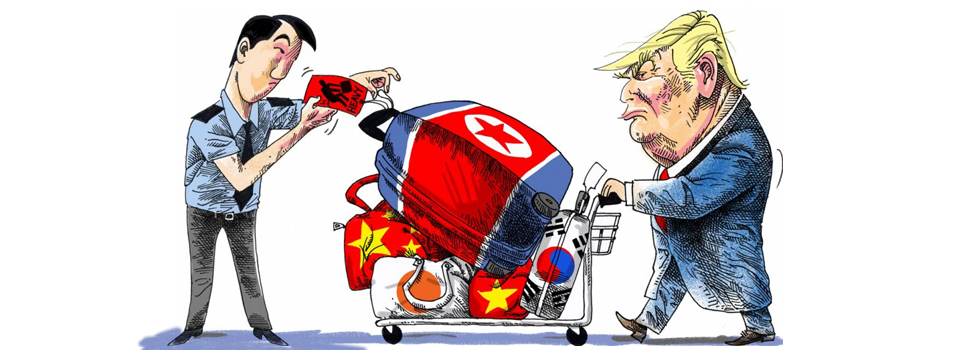Raising the Bar
By: Derwin Pereira
On the 60th anniversary of Singapore’s improbable independence, the thought comes to mind: What has brought the country so far? It is not a miracle. It is an entirely human combination of material, political and social factors that has ensured the national life of Singapore. Industrialisation attuned to the needs of the global market produced outstanding growth. The tough ordering of the political system created stability. The mass education of an entire society drew disparate ethnic groups together and gave every citizen an indivisible stake in the future of Singapore. Extensive public housing shielded families from the elements. Credible deterrence protected citizens from potential invaders. Singapore came to exist.
But there was another element as well at play in the survival of Singapore on all three fronts – the economic, the political and the social. It was (and is) the rule of law. That rule holds societies together by ensuring that ordinary citizens do not owe their liberty and prosperity to the whims of passing circumstances or the fancies of mortal men. A fair and robust legal system gives those citizens concrete faith in the organisation and continuation of society beyond their personal and limited means. Singapore’s legal system is the underlying structure that upholds its special way of life.
Singapore exists because the world allows it to do so. Why does it? Singapore’s founding father Lee Kuan Yew explained the human-made “miracle” this way in a 2007 lecture: “To understand Singapore, you have to know how we were suddenly thrown out of the Federation of Malaysia in 1965 and became an independent state. Peninsular Malaya had been Singapore’s hinterland ever since the British founded Singapore in 1819.
“We faced a bleak future. We had no natural resources. A small island-nation in the middle of newly independent and nationalistic countries of Indonesia and Malaysia, each determined to cut Singapore off as the middleman. To survive, we had to create a Singapore different from our neighbours – clean, more efficient, more secure, with quality infrastructure, and good living conditions. We sought to provide an environment that our neighbours did not provide – first world standards of reliability and predictability.
“Important for investors and economic growth, is the rule of law, implemented through an independent judiciary, an honest and efficient police force, and effective law enforcement agencies. Had we not differentiated Singapore in this way, it would have languished and perished as a shrinking trading centre instead of becoming the thriving business, banking, shipping and aviation hub it is today.”
The contemporary legal system emerged in the spirit of that existential endeavour. Lawyers appeared in the limelight to preserve the international credibility of the new Singapore – whether by protecting the rights of citizens in their dealings with the state; or by assuring businessmen and corporations, whether local or foreign, that their investments would be safe in Singapore; or by acting to make this country a preferred international centre for dispute resolution. The rising quality of the legal profession helped Singapore to uphold the rule of law better. The “founding lawyers” of Singapore, so to say – stalwarts such as Lee Kuan Yew himself, and David Marshall, the first Chief Minister of Singapore – established very high professional standards for subsequent generations of the Bar while the Bench maintained its integrity and dignity.
That tradition continues in the work of illustrious contemporary lawyers. Let me mention a few of them, begging sincere pardon in advance from the many more whom I could have cited but for lack of space.
K Shanmugam
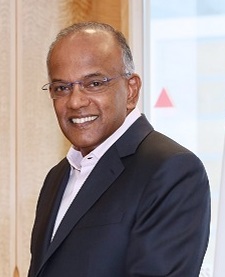
The best-known legal name in Singapore today is also a political luminary. Senior Counsel K Shanmugam, who is Coordinating Minister for National Security and Minister for Home Affairs, read Law at the National University of Singapore, where he graduated at the top of his class with First Class Honours. He became one of the Senior Partners and Head of Litigation and Dispute Resolution at Allen & Gledhill LLP, which was the largest law firm in Singapore. He has been recognised consistently as being one of the top litigation, arbitration and insolvency counsel in Asia and Singapore.
Mr Shanmugam’s talent has helped to place Singapore firmly on the legal map of the evolving region and beyond. It has been noted that arbitration offers many advantages over traditional litigation: speed, cost-effectiveness, confidentiality, and the autonomy of the parties involved. Arbitration allows for tailored procedures, expert arbitrators and can be more efficient, especially for complex or technical disputes. But, of course, it takes a good litigator to make a successful arbitration lawyer. Mr Shanmugam represents that winning combination.
While in practice, Mr Shanmugam regularly handled trial work in major corporate, commercial and insolvency disputes, and malpractice suits and inquiries; and he has acted for lawyers in disciplinary inquiries as well as in criminal proceedings. A Member of Parliament of the People’s Action Party (PAP), he has been recognised widely for his skills in cross-examination and has represented clients both for and against former prime ministers of Singapore in civil lawsuits.
As a member of the Government, Mr Shanmugam has served also as the Minister for Law and the Minister for Foreign Affairs. He is outspoken about tempering the law with compassion and aiming for a greater communitarian spirit which looks after those who cannot care for themselves. A strong advocate of animal welfare, he owns four rescue dogs.
In his legal career, Mr Shanmugam was known as one of the “twin titans of litigation” along with Mr Davinder Singh.
Davinder Singh
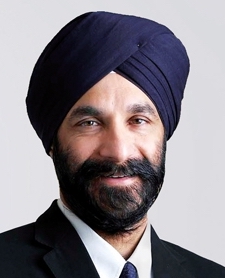
Senior Counsel Davinder Singh, who, too, read Law at the National University of Singapore, is a legendary litigator whose career spans four decades out of the six of independent Singapore. One publication has described him as a lawyer “who is feared in Singapore as the city’s most powerful litigator”. Now, if a person is feared by his opponents in court, he must be revered equally by the clients whom he represents in court.
In this respect, Mr Davinder Singh, a former PAP MP, recalls to the mind the political charisma of Lee Kuan Yew, who was dreaded by the Opposition but exalted by his supporters. Mr Davinder Singh – who has litigated cases in almost every area of the law, including landmark cases – is the Executive Chairman of Davinder Singh Chambers LLC, a firm which specialises in dispute resolution and international arbitration. Those qualifications reflect his active international arbitration practice that involves complex commercial disputes, international clients and multiple jurisdictions.
Mr Davinder Singh’s work exemplifies Singapore’s reputational strength as what a commentator calls a “safe seat”: “When it comes to resolving international disputes, contracting parties prioritise aspects of international arbitration such as respect for the arbitration agreement and (the) arbitrator’s authority, neutrality, enforcement of awards, and confidentiality – and Singapore’s legal framework and judiciary have a solid reputation for upholding them.” Mr Davinder Singh would be too modest to acknowledge this, but he is a part of Singapore’s reputational legal aura in the region and beyond.
Cavinder Bull
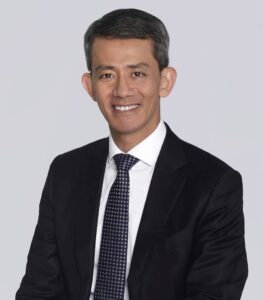
So is Senior Counsel Cavinder Bull, the Chief Executive Officer of Drew & Napier LLC. He graduated with First Class Honours in Law from Oxford University; worked for the Chief Justice of Singapore as a Justices’ Law Clerk; was awarded the Lee Kuan Yew Scholarship and left for Harvard Law School, where he received an LL.M; practised in New York; and returned to Singapore and Drew & Napier.
Mr Bull has an active practice in complex litigation and international arbitration. He is engaged in trial and appellate advocacy at all levels of the Singapore Courts and appears as counsel in international arbitration in various countries. He is on the governing board of the International Council for Commercial Arbitration and is vice-president of the Court of Arbitration of the Singapore International Arbitration Centre. He was also a member of the World Bank Sanctions Board from 2018 to 2023.
Mr Bull’s international education and exposure have given him an invaluable perspective on how Singapore can position itself as a global hub on the arbitration landscape. Again, it takes an expert litigator to become a renowned arbitrator.
Francis Xavier
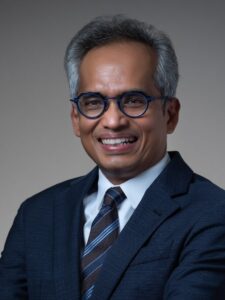
Senior Counsel Francis Xavier has been described as a pioneering leader in international commercial arbitration in Singapore. Born in Malaysia, he moved to the Republic on an ASEAN scholarship for his A-Level education and graduated with a Bachelor of Laws degree from the National University of Singapore. He is Rajah & Tann Singapore LLP’s Regional Head of Disputes Group. He practises international and treaty arbitration and cross-border commercial litigation. He is involved actively in cross-border commercial disputes in the areas of corporate, banking, property, financial and investment-related claims. His track record includes novel and unprecedented cases.
Mr Xavier is a Chartered Arbitrator and has acted for a number of parties in treaty disputes, including many Asian governments. He is now assisting several governments to set up their international arbitration framework. He chairs the Inquiry Panel of the Law Society of Singapore. Among his numerous accolades are these: “Francis has been able to turn things around for us”; “Francis is a very intelligent lawyer who thinks out of the box”; and “I especially recommend Francis Xavier for his input. He is an outstanding advocate.”
Chong Yee Leong
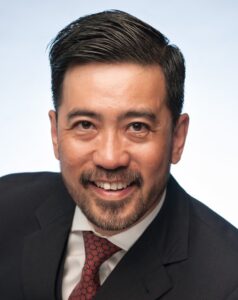
Mr Chong Yee Leong, who graduated in Law from the National University of Singapore, is the Co-Head of Allen & Gledhill’s International Arbitration Practice and Head of the firm’s Restructuring and Insolvency Practice.
In international arbitration, he focuses on the areas of construction, energy, oil and gas, power and infrastructure projects and investment and commercial disputes in Southeast Asia, South Asia, East Asia and Africa. In practice for more than 32 years, Mr Chong is recognised as a leading international dispute resolution practitioner in the Asia-Pacific region.
Mr Chong has been consistently recommended for his capability in international arbitration, restructuring and insolvency in various leading legal publications. A client has highlighted his “advocacy skills”, adding that “he was able to point out certain angles the other lawyers didn’t”.
Samuel Chacko
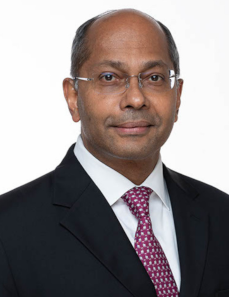
Mr Samuel Chacko heads the dispute resolution practice group at Legis Point LLC and specialises in arbitration, commercial disputes and international trade, among other areas. He graduated from the University College of Wales, Aberystwyth, before gaining a Master of Law degree at the University of Cambridge and a joint Master of Science degree from King’s College, University of London, and National University of Singapore.
Mr Chacko’s nearly three decades of experience at the Bar have brought him renown for his expertise in international arbitration and complex litigation. He has played a pivotal role in shaping policy, enhancing procedural standards and promoting Singapore as a leading centre for dispute resolution in several roles, including, importantly, being Vice-President of the Law Society of Singapore. He has been lead counsel in high-value, cross-border disputes. As a Chartered Arbitrator, he is frequently appointed as sole, presiding, and emergency arbitrator in multi-jurisdictional matters. Mr Chacko has promoted Singapore’s legal framework and arbitration regime, thus reinforcing this country’s status as a preferred seat for international dispute resolution. He represents how Singapore law has advanced on the international stage.
The tradition
The legal personalities whom I have cited represent two things. First, it is how “founding lawyers” such as Lee Kuan Yew and David Marshall helped to create an ecosystem that permitted the rule of law to flourish in Singapore. Second, it is how that ecosystem succeeded in placing Singapore within an international sphere in which legal areas such as dispute resolution, particularly arbitration, came to be recognised as expanding niches in which Singapore’s new generation of lawyers could make their mark on the world.
Their work impinges on the Republic’s position in the world as well. In a speech last year, Prime Minister Lawrence Wong noted that it is critical for small states to stand together and intensify efforts to reinforce the multilateral system, as well as defend the principles of international law. Indeed, he said that a strong and effective multilateral system based on international law is not just beneficial for small states but is an existential issue. “Without a rules-based order that treats countries equally, the risks for small states increase exponentially. We face the danger of descending into a world where power dictates justice – a world governed by the law of the jungle, where might makes right,” he added.
The international rule of law is a very large issue which is tied up with geopolitics ultimately. However, being a hub for legal work on international dispute resolution and arbitration indicates Singapore’s investment in the sanctity of the law, whether abroad or at home.
Singapore’s legal best form an intrinsic part of that investment.
They keep raising the Bar.
The writer is the founder and CEO of Pereira International, a Singapore-based strategic advisory firm. An award-winning journalist and a graduate alumnus of the Kennedy School of Government at Harvard University, he is also a member of the Board of International Councillors at the Center for Strategic and International Studies in Washington, DC.
Raising the Bar-updated

